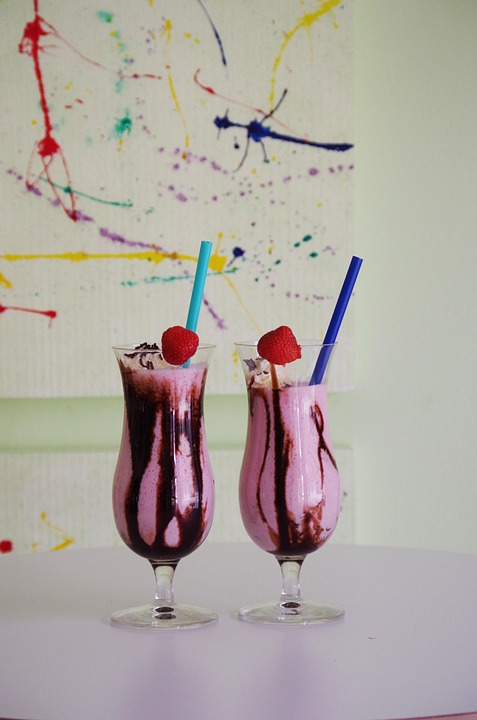Introduction
Plant-based dairy alternatives have been gaining popularity in recent years as consumers become more conscious of their health, the environment, and animal welfare. One of the key drivers of innovation in this sector is the development of sustainable packaging solutions that reduce the environmental impact of these products. In this report, we will explore how plant-based dairy alternatives are driving innovation in sustainable packaging, the companies leading the way, and the financial implications of these initiatives.
Impact of Plant-Based Dairy Alternatives on Sustainable Packaging
Reducing Plastic Waste
One of the main benefits of plant-based dairy alternatives is their potential to reduce the use of plastic packaging. Traditional dairy products often come in single-use plastic containers that contribute to the growing plastic waste problem. Plant-based dairy alternatives, on the other hand, can be packaged in more sustainable materials such as paper-based cartons, glass bottles, or compostable packaging.
According to a report by Grand View Research, the global market for sustainable packaging is expected to reach $399.28 billion by 2027, driven by increasing consumer awareness of environmental issues. Plant-based dairy alternatives are playing a significant role in this growth by offering more sustainable packaging options that appeal to eco-conscious consumers.
Innovative Packaging Solutions
Companies in the plant-based dairy industry are investing in innovative packaging solutions to reduce their environmental footprint. For example, Oatly, a popular oat milk brand, recently introduced a plant-based carton made from renewable sugarcane. This packaging is not only recyclable but also biodegradable, making it a more sustainable option compared to traditional plastic containers.
Other companies like Califia Farms and Silk have also adopted sustainable packaging practices by using recycled materials, plant-based plastics, or compostable packaging for their dairy alternatives. These initiatives not only help reduce plastic waste but also appeal to environmentally conscious consumers who are looking for more sustainable options.
Financial Implications of Sustainable Packaging
Cost Considerations
While investing in sustainable packaging solutions may require upfront costs for companies, the long-term financial benefits can outweigh the initial investment. According to a study by McKinsey, companies that prioritize sustainability in their packaging can achieve cost savings through reduced material usage, improved operational efficiency, and increased brand loyalty from environmentally conscious consumers.
In the plant-based dairy industry, companies that adopt sustainable packaging practices can also benefit from lower production costs, as sustainable materials like paper-based cartons or plant-based plastics are often cheaper than traditional plastic packaging. This cost advantage can give these companies a competitive edge in the market while also contributing to their sustainability goals.
Consumer Perception and Brand Loyalty
Sustainable packaging can also have a positive impact on consumer perception and brand loyalty. A survey by Nielsen found that 73% of consumers are willing to pay more for products that come in sustainable packaging. By offering plant-based dairy alternatives in eco-friendly packaging, companies can attract environmentally conscious consumers who are willing to support brands that prioritize sustainability.
Moreover, sustainable packaging can enhance brand reputation and differentiate companies in a crowded market. Brands that are seen as environmentally friendly and socially responsible are more likely to build trust with consumers and foster long-term loyalty. This can ultimately lead to increased sales and market share for companies that prioritize sustainability in their packaging practices.
Companies Leading the Way in Sustainable Packaging
Oatly
Oatly is a Swedish oat milk company that has been at the forefront of sustainable packaging innovation. The company recently introduced a plant-based carton made from renewable sugarcane, which is both recyclable and biodegradable. Oatly’s commitment to sustainability has resonated with consumers, making it a popular choice among eco-conscious shoppers.
Califia Farms
Califia Farms is another leading plant-based dairy company that has prioritized sustainable packaging solutions. The company uses recycled materials and compostable packaging for its dairy alternatives, reducing its environmental impact and appealing to environmentally conscious consumers. Califia Farms’ commitment to sustainability has helped it build a strong brand reputation in the market.
Silk
Silk, a well-known brand of plant-based milk, has also made strides in sustainable packaging practices. The company uses plant-based plastics for its packaging, which are biodegradable and compostable. Silk’s focus on sustainability has helped it attract a loyal customer base of eco-conscious consumers who appreciate its commitment to the environment.
Conclusion
Plant-based dairy alternatives are driving innovation in sustainable packaging, with companies investing in eco-friendly materials and practices to reduce their environmental footprint. By offering dairy alternatives in sustainable packaging, companies can appeal to environmentally conscious consumers, achieve cost savings, and build brand loyalty. As the demand for plant-based products continues to grow, sustainable packaging will play an increasingly important role in the success of companies in the plant-based dairy industry.




